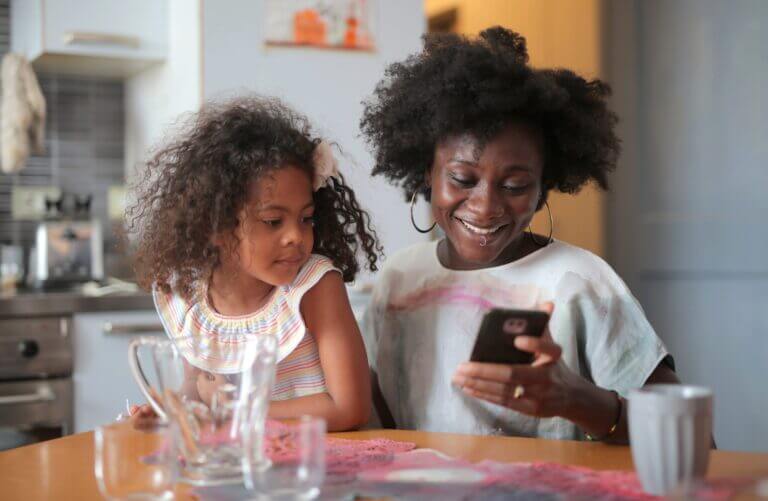Our children are sponges who watch and mimic our behaviors. They witness our actions and hear how we speak about others and ourselves. So, doesn’t it make sense that bullying prevention should start in our own homes? In honor of National Bullying Prevention Month, we want to spark conversations across the nation about ways we can help our kids fight and overcome the bullying epidemic. In the simplest terms, we need to consider how we talk about and treat others and empower our children to stand up for themselves and others. Let’s break down what this looks like:
Stand out by being kind.
We live in a busy, and oftentimes, self-involved world. While we’re going about our day, it’s easy to get frustrated with people around us—maybe a car is driving slowly, or your food order didn’t come out right. But our reactions in these moments are pivotal for teaching our children to be kind, caring individuals.
One way that we can start igniting kindness in our day-to-day lives is by practicing intentional kindness. Be proactive and look for ways to meet a need or brighten someone’s day. Even small actions like smiling, saying hello, or holding open the door can turn someone’s day around. When intentional kindness becomes a habit, it can spread to other areas of our lives, making it easier to react with patience and compassion when we face frustrating moments.
Talk to your kids about intentional kindness and what that might look like at school. They could sit with someone new at lunch, thank their teacher or a school employee, or compliment someone on their class presentation. Together, make a list of ways that your child can help make their school a kinder place.
Stand out by being you.
Can you think of something about yourself that you love, but as a child, you felt differently about it? As we grow older, it can become easier to appreciate the things that make us unique. But as a child, it can be scary to stand out, particularly because one approach of bullying is to target the differences in others. Oftentimes, it can be hard for a kid to grasp that getting picked on because of their uniqueness is actually a good thing—it means there is something special about them.
Think about the way you talk about yourself. If you’re having an off day and you can’t find the perfect outfit, do you speak negatively about yourself? Do you watch any reality TV shows or social media content that pokes fun at the way celebrities look? The message that these scenarios can send to our kids can be incredibly damaging.
Instead, let’s teach our kids to celebrate what makes them different and to speak uplifting words about themselves. If your child is being picked on for their size, one way to combat this is to show them actors and athletes with similar statures who have excelled in their career. Encourage them to find ways that they can do things that others can’t and point out their strengths. The more we build their confidence, the less the bullies will be able to hurt their feelings.
Stand up for yourself.
Can you think of a time when someone treated you poorly, but you either didn’t stand up for yourself or you reacted badly? Hindsight can provide clarity of how we could have handled the situation better. And we can use these experiences to teach our kids how to react.
When you have a kind child who focuses on doing the right thing and wants to stay out of trouble, it can be hard for them to understand that it’s okay to stand up for themselves. But they need to know that they should not have to put up with bullying and that it is unacceptable behavior.
If your child is being bullied, empower them to speak up and tell the bully they need to stop. If it continues, they should tell a teacher or another trusted adult who can help intervene. In extreme cases, it may be necessary for them to physically protect and stand up for themselves. None of this should be viewed as “bad” behavior. Encourage them to be confident and empower them with the knowledge that they do not deserve to be treated this way.
Stand up for others.
As grownups, it can be easy to get caught up in a conversation that turns into gossip. Whether it’s the politics of your workplace, the happenings of friend groups, or even celebrity news, we oftentimes bond with others over gossip or making fun of others. Maybe this is because it’s become a habit or because we’re looking for acceptance, but no matter the reason, it’s wrong.
Our kids are facing the same situations at school. Kids can resort to befriending bullies or participating in bullying behavior because they think it’ll help them be accepted or popular. Instead of wanting to be popular, let’s instill in them the desire to be a hero—someone who defends and stands up for others who are being bullied.
Start by evaluating how you speak about others. Do your kids hear you participate in gossip, or do they hear you redirect conversations that are turning negative? Do you defend others who are being put down? Your actions can teach them the importance of not simply being a bystander to cruel behavior.
It starts with us.
Knowing how to handle and prevent bullying behavior as a parent is a learned skill, and we can teach our kids to stand up against bullying and to practice kindness every day. Take some time to self-reflect. How can you demonstrate kindness to your children? Are there certain areas where you feel like you could improve? Talk to your kids about what they can do in the fight against bullying, and together, let’s make the world a more compassionate, inclusive place.



























































